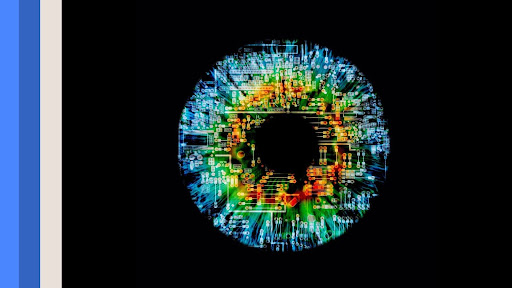Let’s face the facts. Search engines have definitely become a lot more advanced and more intelligent over time, that first generation of online search engines was truly revolutionary. To “search” something online has completely lost its charm due to the pointless ads, spam, and a ton of useless content.
For some reason, most active search engines such as Google continue to push the integrative AI narrative claiming “AI is the future”. Yet, we all know how many times we have faced unsuccessful attempts at using AI. Taking charge of the answer providing market include services such as Perplexity and OpenAI with their SearchGPT. I received an email not so long ago advertising yet another new AI search engine— this one claiming to provide the most unconventional methods of answering questions. Dubbed Pearl, it is set to release from beta this week. Like all other AI search engines, Pearl provides an initial answer to questions using LLMs to generate responses (that are far from accurate). In addition to the large language model initial attempts at answer generation, it goes a step further. Pearl allows human fact checkers to offer answers and gives users the ability to engage with experts and discuss the answers, both online and via phone.
From AI Search Engine Revolution to Traditional Expert Networks: Unveiling Pearl’s Evolution
Reading about its gimmick, my first inclination was to wonder why Pearl would use AI in the first place. To understand, I had to reach out to the company ceo Andy Kurtzig.
Kurtzig emphasized that Pearl is an offshoot of another search program he has been developing for a long time, a more conventional one called JustAnswer, which requires a subscription and provides access to experts for users’ queries. “About 11 years ago we started playing with the concept of AI integrated with professional services,” he states. Once the generative AI boom began, he made the decision to turn Pearl into a standalone offering. (For many years, the business has owned an older chatbot product named Pearl. At one time, they rebranded JustAnswer to Pearl before changing it back.)
The backbone of Pearl’s LLM consists of several well-known foundational models, such as ChatGPT, which is modified to include JustAnswer’s relic data bank containing an archive of questions and answers since its inception in 2003.
In Kurtzig’s opinion, Pearl uses AI and human performance to reduce the cost of obtaining expert solutions. JustAnswer requires payment, whereas Pearl operates under the freemium model. AI-generated responses are free, as is the TrustScore™, a human fact-check, for grading a response on a scale of 1 to 5. If Pearl users wish to have an expert elaborated on an AI-provided answer, they must subscribe to the service for $28 a month.
Kurtzig noted that most AI search engines might incur legal liability under the 230 of the Communications Decency Act for the services offered due to their nature as a publisher rather than a platform. One detail I observed from the previous email regarding Pearl was their claim of ‘solving a lot of the escalating legal obstacles AI powered search engines face,’ but how is this possible? By blending human experts with answers, Pearl wiggles its way into the protection boundaries of Section 230 that shield traditional search engines from liability.
He also argues that Pearl is far less likely to provide erroneous information than the other AI search engines, which he assumes face “a tsunami” mof litigation because of the awful responses they provide. Kurtzig states, “Those other players are building amazing technologies. I call them Ferraris or Lamborghinis.” He continues to say, “We’re building a Volvo – safety first.”
Surely, this pitch about Pearl’s superiority made me eager to use it even more. I could tell that Kurtzig was quite confident that Pearl would be covered under Section 230. So I went ahead, and asked the AI if it agreed.
Kurtzig was right when he said that Pearl most likely qualifies as an “interactive computer service” under Section 230. This unexpected claim would mean exoneration from treating pearl as a publisher. That is, shielded as Kurtzig presumed. However, the AI continued, “Pearl’s situation is unique because it generates content using AI.” And I realized that the AI didn’t have a definite answer after all.
When I requested to talk to the lawyer directly, I was sent to JustAnswer which wanted me to state what answer I was looking for. I told them that I needed to go back and copy the answer that was several paragraphs long. However, when I returned to the Pearl website, the chat had reset and started from scratch.

When I tried again, this time using the Pearl browser on my desktop, I got an equally vague answer, but this time, I decided to activate the human fact-checker option. After waiting several minutes, I was given the TrustScore™, which was a pathetic 3!
From here- Pearl suggested that I look for an actual opinion of an explained which sent me to its subscription page. I had been provided a login so I did not have to pay in the trial period. It then routed me to one of their legal eagle.
As expected, the lawyer’s explanations were no clearer than those provided by the AI. Nowadays you can search any type of legal questions from lawyers online,from their own website. With adequate legal reasoning in mind, he said that there was controversy about how Section 230 applies to AI search engines and other AI powered SEO tools, but when I prompted him with specific questions, his responses baffled me when he states that most “use shell companies or associations to file.”
When the request came for one such supplemental identification, I was utterly perplexed as I imagined that this was a public debate on Section 230, so I asked, why do I need those before IHOL the legal expert asked why I need those. To my complete and utter amazement, he added: Do you want me to make you a package? In a state of confusion, I said yes only to receive a notice that my expert was charging me an additional fee of $165 in exchange for the documents.
That’s enough – I thought to myself and decided to pass.
AI Search Engine Under the Microscope: Gets Bad Mixed Trust Scores and Waiting for Humans
I asked Pearl next about the history of Techishweb, and the AI’s answer was decent, albeit woefully incomplete, as it did not provide anything beyond the usual snippets available on Wikipedia. My TrustScore feedback still returned a 3, which in my estimation was not a very good answer. I tried again and selected the option for another human ‘expert’. This time, because it was a media question and not a blatant medical or legal question, the expert took more than 20 minutes to show up. After a lengthy wait, he did show up, but as he was never introduced, I was not sure what made him an expert in the media. Explaining his profile that claimed to have worked with JustAnswer since 2010, did not help. His was surprisingly the same as the AI. Since I was doing a free test, I did not mind, but had I been paying the subscription fee, I would have been very angry: my subscription fee got me mediocre answers from AI and a human.
During my last effort to utilize the service, I submitted a very basic request: explain how to furnish kitchens with floor refinishing. This time, the AI performed well. The response was satisfactory, as basic as a novice YouTube tutorial, one of which the AI probably generated. When I presented this answer to an expert asking them to give it a TrustScore™, they simply gave it close to the middle—5. It was clear, yes, but as someone hoping to DIY kitchen refurbish my aged pine floorboards, I still think I won’t open the answer pearl gives. Instead, I will turn to the more accessible and free community that doesn’t have a subscription plan of $28 per month: YouTube and Reddit.
Concluding Thoughts
Combine Text and Image with Pearl, an experimental AI hybrid search engine, offers users the comfort of swift AI-generated responses while having humans vet facts with experts ahead of time. Its mission of mitigating falsehoods and providing factually reliable information suffers from inconsistent misplaced human support. I think users—at least for now—should continue relying on credible platforms outside of Pearl like YouTube, Reddit, and traditional expert networks until they polish their service model.
If you decide to try out Pearl or any other modern AI search tools and have an interesting experience, I would love to hear your feedback in the comments section under the article.
FAQs
What can AI search engines enhance the accuracy of searches?
AI search engines employ advanced algorithms to comprehend the context and intention, providing more precise and relevant results.
What are the advantages of using AI and human-based fact-checking?
This hybrid model guarantees speedy AI-generated responses while increasing confidence by providing verified facts from experts.
What are the ways AI search engines improve user experience?
They provide more customized and a more conversational response, which is often specific to each person’s individual preferences and requirements.
What is the reason AI search engines being viewed as the future of search?
With improved accuracy speed, speed, and legal conformity, they are changing the way people search for trustworthy information online.



































